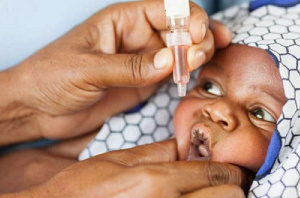Polio is a highly infectious disease, mostly affecting young children, that attacks the nervous system and can lead to spinal and respiratory paralysis, and in some cases death.
The virus can be spread through contact with an infected person. This is most often done through virus in stool or oral discharge. The virus also can live on infected surfaces or in food and drink.
According to Mayoclinic, while there’s no cure for polio, the polio vaccine can prevent it.
Redness/swelling/tenderness at the injection site, fever, irritability, and tiredness may occur. Allergic reactions to the vaccine are rare. If any of these effects last or get worse, tell your health care professional promptly. Washing your hands with soap and water or using hand sanitiser regularly throughout the day also helps you avoid catching and spreading viruses.
In 1953, American medical researcher Dr. Jonas Salk announced that he has successfully tested a vaccine against poliomyelitis, the virus that causes the crippling disease of polio.
Children usually get the inactivated poliovirus vaccine (IPV) at ages 2 months, 4 months, 6–18 months, and 4–6 years. Sometimes IPV is given in a combination vaccine along with other vaccines.
 Home Of Ghana News Ghana News, Entertainment And More
Home Of Ghana News Ghana News, Entertainment And More





